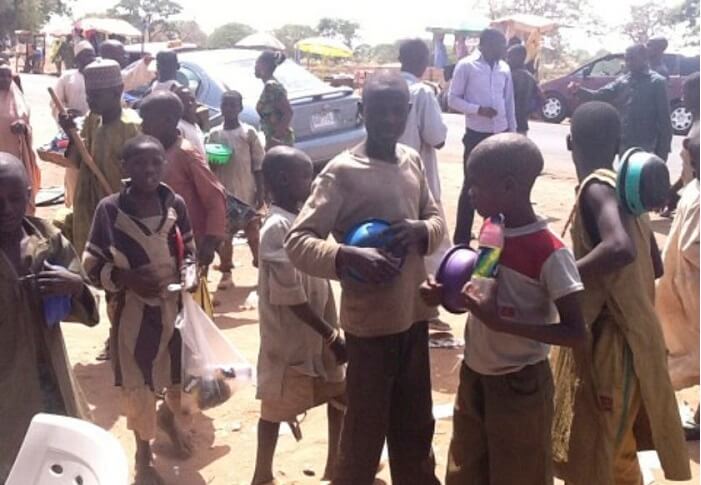Kano State Governor, Abdullahi Ganduje, has begun the deportation of almajiris in the state as part of measures to slow down Coronavirus (COVID-19) transmission in the state.
Kano is now the state with the third highest number of confirmed cases of COVID-19 in the country, one week after confirming its index case.
Advertisement
Nigeria had confirmed a total of 627 cases of the virus on Sunday, with Lagos accounting for 376, FCT 88 and Kano with 36 of the total number of cases.
Governor Ganduje said the decision to deport the almajiris back to their hometowns followed the discovery that some almajiri schools were still operating despite his administration’s shutdown of schools in the state.
He disclosed this on Sunday when he received a situation report from the state’s task force and COVID-19 fundraising committee at the government house in Kano.
Ganduje said the state government had set up a high-powered almajiri committee under the leadership of Murtala Garo, commissioner for local government.
Advertisement
“We closed all schools in the state to curb the spread of the pandemic but we found out that existence of almajiri schools is constituting a stumbling block,” he said.
“We have complete records of all almajiris and their schools in Kano. So far, over 2,000 almajiris had gone back to their states.”
According to Ganduje, his government had identified three categories of almajiris to be taken care of.
He said the first category from neighbouring states of Bauchi, Katsina, Jigawa, Kaduna and Niger Republic would be evacuated to their states.
The second category of almajiris, who were indigenes, would be enrolled into their neighbourhood conventional schools.
Advertisement
He warned that the state government would charge parents who resisted the initiative to court.
“For the third category who are sleeping on the streets, markets and under the bridge, we will take them to our boarding schools where we will provide them with uniforms and feeding,” he added.
Ganduje said with the help of traditional rulers, the government had identified the poorest of the poor for distribution of palliatives, and noted that food items would be distributed to 50,000 households based on the collection so far.
“Each household will receive 25kg bag of rice, semovita or dawavita, one carton of spaghetti or macaroni or indomie; one four-litre gallon of vegetable oil and N2,000 cash,” he said.
The governor also appealed to the federal government for additional testing centres, palliative and protective kits.



